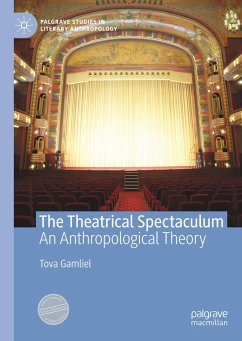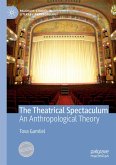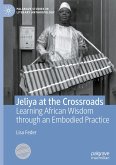This book offers a new mythic perspective on the secret of the allure and survival of a current-archaic institution-the Western theatre-in an era of diverse technological media. Central to the theory is the spectaculum-a stage "world" that mirrors a monotheistic cosmic order.
Tova Gamliel here not only alerts the reader to the possibility of the spectaculum's existence, but also illuminates its various structural dimensions: the cosmological, ritual, and sociological. Its cosmo-logical meaning is a Judeo-Christian monotheistic consciousness of non-randomness, an exemplary order of the world that the senses perceive. The ritual meaning denotes the centrality of the spectaculum, as the theatre repeatedly reenacts the mythical and paradigmatic event of Biblical revelation. Its social meaning concerns any charismatic social theory that is anchored in the epitomic structure of social sovereignty-stage and audience-that the Western theatre advances in an era characterized by hypermedia.
Tova Gamliel here not only alerts the reader to the possibility of the spectaculum's existence, but also illuminates its various structural dimensions: the cosmological, ritual, and sociological. Its cosmo-logical meaning is a Judeo-Christian monotheistic consciousness of non-randomness, an exemplary order of the world that the senses perceive. The ritual meaning denotes the centrality of the spectaculum, as the theatre repeatedly reenacts the mythical and paradigmatic event of Biblical revelation. Its social meaning concerns any charismatic social theory that is anchored in the epitomic structure of social sovereignty-stage and audience-that the Western theatre advances in an era characterized by hypermedia.







